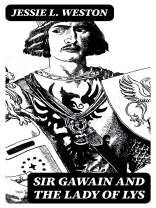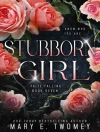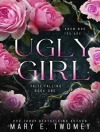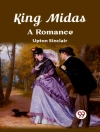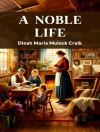In ‚Sir Gawain and the Lady of Lys‘ by Jessie L. Weston, readers are transported to the world of medieval romance and chivalry. The book presents a retelling of the classic tale of Sir Gawain, a noble knight of King Arthur’s Round Table, and his encounter with the mysterious Lady of Lys. Weston’s writing beautifully captures the essence of the medieval literary style, with its poetic language and vivid descriptions of courtly love and heroic deeds. This retelling is a valuable contribution to the genre of Arthurian literature, offering a fresh perspective on the well-known tale. Readers will be captivated by the engaging narrative and timeless themes of honor, love, and redemption that are woven throughout the story. Jessie L. Weston, a renowned folklorist and literary critic, brings her deep knowledge of medieval literature and mythology to ‚Sir Gawain and the Lady of Lys‘. Her expertise in the Arthurian legends and medieval romances shines through in this retelling, making it a must-read for enthusiasts of the genre. Weston’s passion for the subject matter is evident in her insightful commentary and thoughtful interpretation of the characters and themes in the story. I highly recommend ‚Sir Gawain and the Lady of Lys‘ to anyone with an interest in Arthurian literature, medieval romance, or literary retellings. Weston’s adaptation of this classic tale is a literary gem that will appeal to both scholars and general readers alike, offering a fresh perspective on a timeless story.
Über den Autor
Jessie Laidlay Weston (1850–1928) was an independent scholar, folklorist, and authority on Arthurian legends, whose work contributed significantly to the study of medieval literature. Her focus on grail and romance literature translated into a series of notable contributions to the field, one of which includes ‚Sir Gawain and the Lady of Lys‘, a study and edition of the Arthurian tale. A self-taught polyglot, Weston’s area of expertise covered a range of European languages that allowed her to access and interpret source material directly. Her literary style was characterized by a combination of rigorous scholarship and a passionate interest in her subject matter, which is evident in her detailed analysis and commentary on the text of ‚Sir Gawain and the Lady of Lys‘. Weston’s broader work included ‚From Ritual to Romance‘, where she posited an influential theory connecting the Holy Grail myth to ancient fertility rites, a text that later influenced T.S. Eliot’s ‚The Waste Land‘. Her scholarly approach was rooted in comparing literature with folklore, myth, and religion, thereby bringing a multi-disciplinary perspective to the study of medieval romances. Though some of her theories have since been contested, her scholarship remains an essential part of the discourse on Arthurian literature. Weston was granted honorary degrees for her work, and her legacy as a pioneering woman in the field of medieval studies endures.
